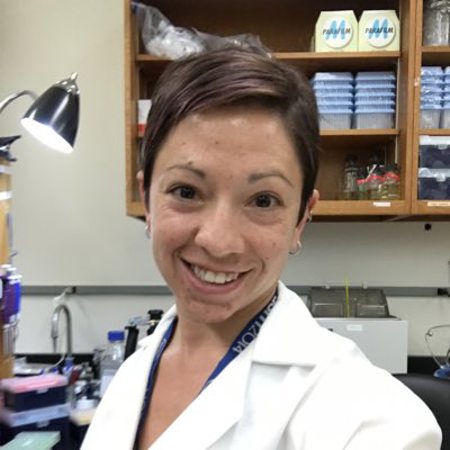Stephanie Shames
Associate Professor, Department of Microbiology, Genetics, & Immunology
Associate Professor, BioMolecular Science Gateway
Location: 5192 Biomed Phys Sci
Phone: 517-884-5364
Email: shames@msu.edu
Website: https://www.shames-lab.com/
Bio
###Education B.M.Sc., 2006, University of Western Ontario Ph.D., 2012, University of British Columbia Postdoctoral Fellow, 2012-2017, Yale University School of Medicine ###Research Intracellular bacterial pathogens are a significant cause of global morbidity and mortality and uncovering mechanisms by they interact their hosts is critical to combatting disease. As an opportunistic bacterial pathogen of humans that naturally replicates within free-living protists, Legionella pneumophila is an excellent model organism to define mechanisms of host-pathogen interactions. L. pneumophila causes a severe inflammatory pneumonia called Legionnaires’ disease in humans, which results from inhalation of contaminated aerosols and subsequent bacterial replication within alveolar macrophages. To replicate within phagocytic cells, L. pneumophila uses hundreds of translocated virulence factors called effector proteins to establish its replicative niche, the Legionella-containing vacuole. Effectors are essential for L. pneumophila virulence; however, they also paradoxically enhance the inflammatory response to infection. Mechanisms by which effector proteins contribute to virulence and host responses to infection are largely unknown. My lab leverages biochemical, immunological, cell biological, and in vivo approaches to address two major questions: How do effectors contribute to the host response to bacterial infection? How do regulatory effectors, termed metaeffectors, contribute to bacterial pathogenicity? L. pneumophila is an ‘accidental’ human pathogen that rarely transmits person-to-person. Consequently, this organism has not evolved sophisticated immune evasion strategies and is rapidly cleared by the innate immune system in healthy hosts. Effectors play a central role in host detection of L. pneumophila as a pathogen through a phenomenon called Effector-Triggered Immunity (ETI). We investigate molecular mechanisms of ETI and how these responses can be harnessed for development of host-centric innate immunologicals to combat clinically relevant and antimicrobial resistant pathogens. Legionella pneumophila encodes and translocates over three hundred individual effector proteins into infected host cells. How these effectors are regulated following translocation into host cells is poorly understood. Canonically, bacterial effectors have been associated exclusively with subversion of host factors. However, Legionella encodes multiple effectors that function exclusively to regulate other effectors, called metaeffectors. Metaeffectors are clearly important for L. pneumophila virulence, but their regulatory mechanisms are poorly understood. We investigate how metaeffectors regulate their cognate effectors and how this regulation drives intracellular replication. Elucidating mechanisms of metaeffector function will reveal novel mechanisms of bacterial pathogenicity and evaluate their use as targets for anti-virulence therapeutics.
